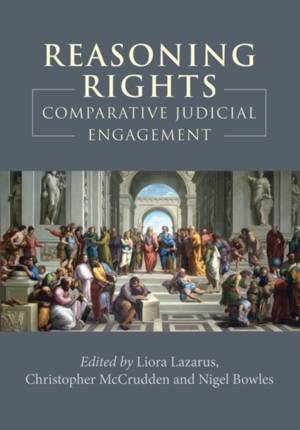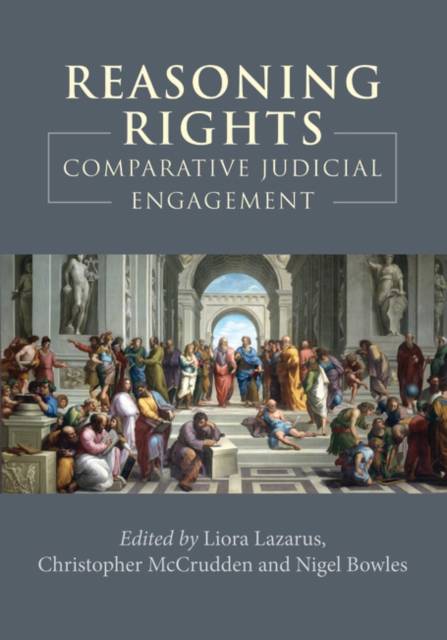
Bedankt voor het vertrouwen het afgelopen jaar! Om jou te bedanken bieden we GRATIS verzending (in België) aan op alles gedurende de hele maand januari.
- Afhalen na 1 uur in een winkel met voorraad
- In januari gratis thuislevering in België
- Ruim aanbod met 7 miljoen producten
Bedankt voor het vertrouwen het afgelopen jaar! Om jou te bedanken bieden we GRATIS verzending (in België) aan op alles gedurende de hele maand januari.
- Afhalen na 1 uur in een winkel met voorraad
- In januari gratis thuislevering in België
- Ruim aanbod met 7 miljoen producten
Zoeken
€ 145,45
+ 290 punten
Omschrijving
This book is about judicial reasoning in human rights cases. The aim is to explore the question: how is it that notionally universal norms are reasoned by courts in such significantly different ways? What is the shape of this reasoning; which techniques are common across the transnational jurisprudence; and which are particular?
The book, comprising contributions by a team of world-leading human rights scholars, moves beyond simply addressing the institutional questions concerning courts and human rights, which often dominate discussions of this kind, seeking instead a deeper examination of the similarities and divergence of reasonings by different courts when addressing comparable human rights questions. These differences, while partly influenced by institutional concerns, cannot be attributed to them alone. This book explores the diverse and rich underlying spectrum of human rights reasoning, as a distinctive and particular form of legal reasoning, evident in the case studies across the selected jurisdictions.
The book, comprising contributions by a team of world-leading human rights scholars, moves beyond simply addressing the institutional questions concerning courts and human rights, which often dominate discussions of this kind, seeking instead a deeper examination of the similarities and divergence of reasonings by different courts when addressing comparable human rights questions. These differences, while partly influenced by institutional concerns, cannot be attributed to them alone. This book explores the diverse and rich underlying spectrum of human rights reasoning, as a distinctive and particular form of legal reasoning, evident in the case studies across the selected jurisdictions.
Specificaties
Betrokkenen
- Auteur(s):
- Uitgeverij:
Inhoud
- Aantal bladzijden:
- 392
- Taal:
- Engels
Eigenschappen
- Productcode (EAN):
- 9781849462525
- Verschijningsdatum:
- 1/06/2014
- Uitvoering:
- Hardcover
- Formaat:
- Genaaid
- Afmetingen:
- 173 mm x 244 mm
- Gewicht:
- 907 g

Alleen bij Standaard Boekhandel
+ 290 punten op je klantenkaart van Standaard Boekhandel
Beoordelingen
We publiceren alleen reviews die voldoen aan de voorwaarden voor reviews. Bekijk onze voorwaarden voor reviews.









